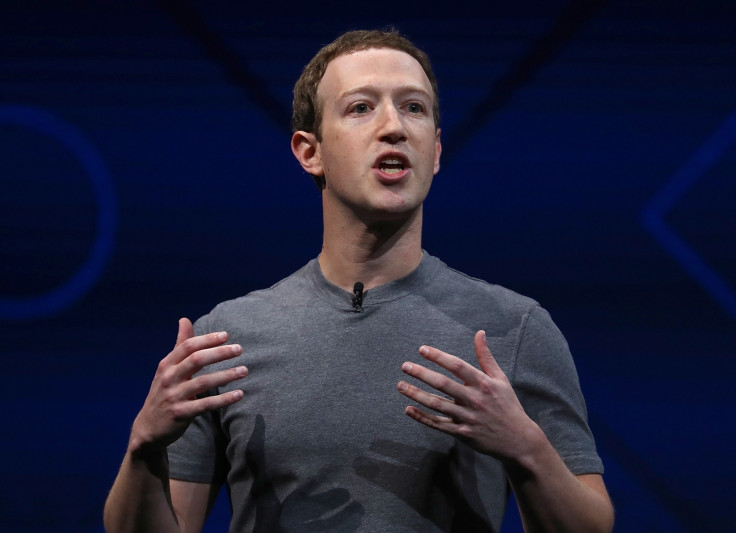Facebook to share 3,000 Russia-linked ads with Congress: 'We are committed to rising to the occasion'
"I care deeply about the democratic process and protecting its integrity," CEO Mark Zuckerberg said.

Facebook has agreed to turn over to congressional investigators roughly 3,000 ads purchased by Russian-linked groups during the 2016 presidential election, CEO Mark Zuckerberg announced on Thursday (21 September). The decision comes after weeks of intense scrutiny for the social media giant after it revealed about $100,000 (£74,470) worth of Facebook's politically divisive ads were sold to authentic accounts and pages likely linked to Russia last year.
Facebook's general counsel Colin Stretch said in a statement: "After an extensive legal and policy review, today we are announcing that we will also share these ads with congressional investigators. We believe it is vitally important that government authorities have the information they need to deliver to the public a full assessment of what happened in the 2016 election."
In a Facebook Live video, Zuckerberg said the company would cooperate with federal investigations into alleged Russian meddling in the 2016 election and outlined the company's next steps towards "protecting election integrity".
"I care deeply about the democratic process and protecting its integrity," Zuckerberg said. "Facebook's mission is all about giving people a voice and bringing people closer together. Those are deeply democratic values and we're proud of them. I don't want anyone to use our tools to undermine democracy. That's not what we stand for."
"Now, I wish I could tell you we're going to be able to stop all interference, but that wouldn't be realistic," he continued. "There will always be bad people in the world, and we can't prevent all governments from all interference. But we can make it harder. We can make it a lot harder. And that's what we're going to do."
The executive also outlined other measures the company will take to ensure it's a "force for good in democracy", including making its political advertising more transparent and strengthening its political ad review process.
"It has always been against our policies to use any of our tools in a way that breaks the law — and we already have many controls in place to prevent this. But we can do more," Zuckerberg said. "Most ads are bought programmatically through our apps and website without the advertiser ever speaking to anyone at Facebook. That's what happened here."
However, he noted that it is highly unlikely they will be able to prevent and catch all bad content on its site.
"We don't check what people say before they say it, and frankly, I don't think our society should want us to," Zuckerberg said. "Freedom means you don't have to ask permission first, and that by default you can say what you want. If you break our community standards or the law, then you're going to face consequences afterwards."
Facebook will also increase its investment in security and election integrity, expand its work with election commissions around the world and share threat information on bad actors with other tech and security companies. Zuckerberg also vowed to create more services to protect Facebook users that engage in political discourse on the platform and said they are currently looking into adapting its anti-bullying system to protect against political harassment.
With the German elections coming up, Facebook has cracked down on thousands of fake accounts, partnered with public authorities like the Federal Office for Information Security and shared security practices with local candidates and parties, he said.
"We're also examining the activity of accounts we've removed and have not yet found a similar type of effort in Germany," Zuckerberg noted.
Zuckerberg's latest comments mark a significant departure from his initial comments on the issue. Shortly after the election, he dismissed the idea that fake news and misinformation on Facebook helped sway the vote in Donald Trump's favour as a "pretty crazy idea".
Lawmakers have criticised the company for not sharing enough information and proposed legislation that would force social media companies such as Facebook to disclose who is paying for political ads on its platform. Unlike TV advertising where presidential campaigns must disclose their spending on certain networks, digital advertising on social media networks does not have such rules.
Important step by @facebook. Congress will need to learn more about rigor of its internal investigation & other Russian use of its platform. pic.twitter.com/D2cmjW8LX9
— Adam Schiff (@RepAdamSchiff) September 21, 2017
It was recently reported that Facebook also allowed advertisers to target users interested in controversial topics such as "Jew Hater" and "How to burn Jews." The company has since taken down the offensive categories and has announced policy changes to tighten controls on its ad tools.
Russian operatives also reportedly used the site to organise anti-immigrant protests and Pro-Trump rallies on US soil.
"We are in a new world," Zuckerberg said. It is a new challenge for internet communities to deal with nation states attempting to subvert elections. But if that's what we must do, we are committed to rising to the occasion."
© Copyright IBTimes 2025. All rights reserved.





















